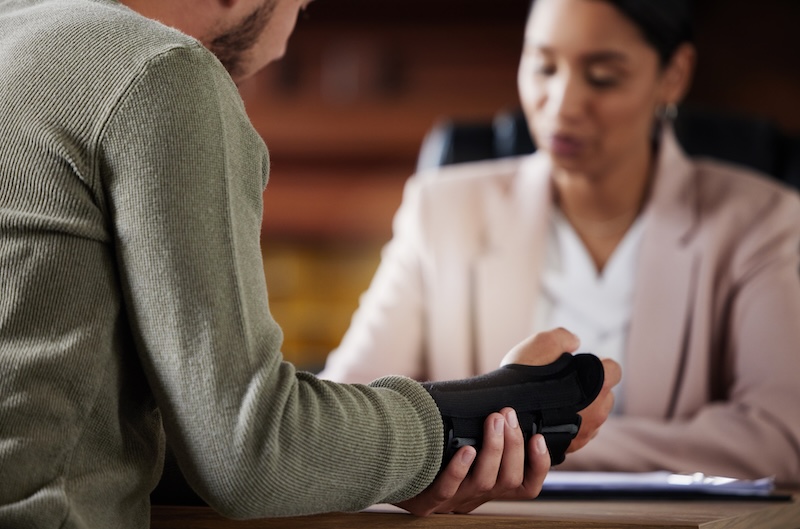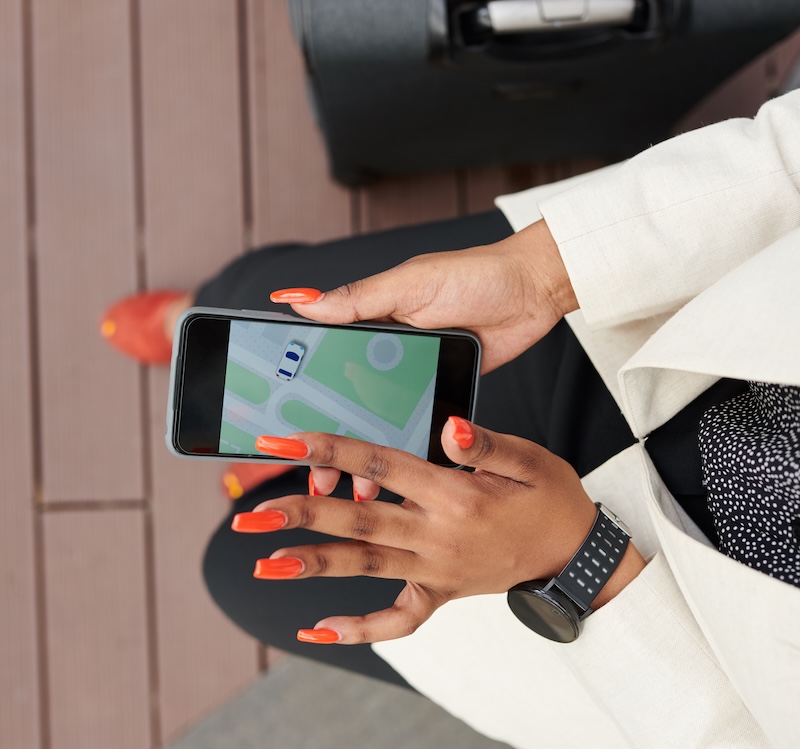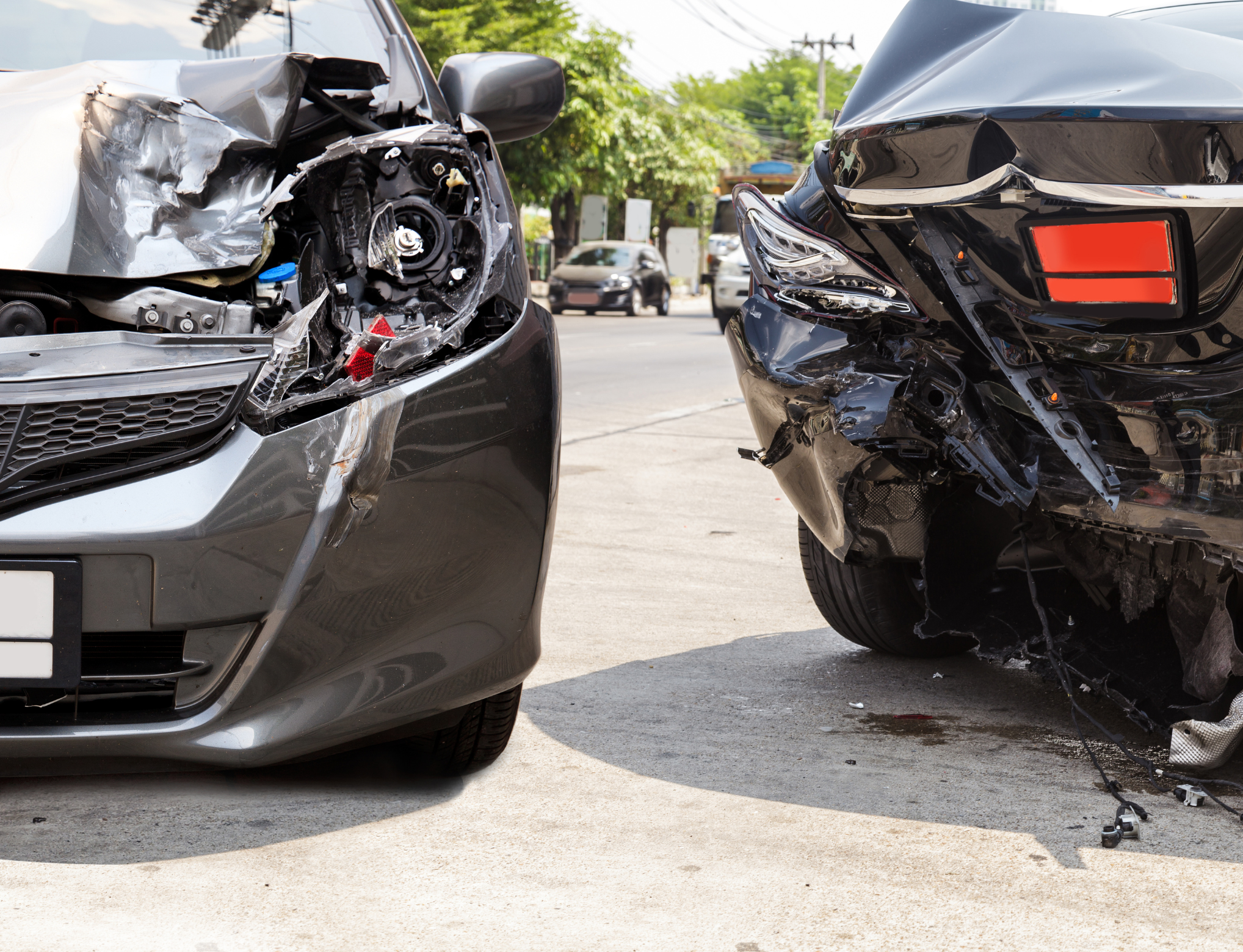Injured passengers in a car accident may be unsure of what to do or if it’s possible to seek compensation for their treatment. Because passengers are rarely at fault in an accident, they usually have the right to pursue damages against the drivers responsible.
Knowing what to do if you’re a passenger in a car accident is critical to protecting your health and preserving evidence. Virginia is an at-fault insurance state, so the evidence you collect may determine if the policy for one or both drivers pays your medical bills.
Cooper Hurley Injury Lawyers has been assisting people hurt through no fault of their own since 2011. Our attorneys have over 120 years of combined legal experience and a successful record of collecting millions of dollars for car accident victims.
Immediate Steps for Passengers To Take After a Car Accident
If you’re a passenger in a car crash, remember these steps to protect yourself and provide evidence for an insurance claim or lawsuit.
1. Prioritize Your Health (Even if You Feel Okay)
If a first responder suggests emergency care, take that advice. Even if you don’t notice any obvious injuries, seek medical care immediately after an accident. Some injuries are not immediately apparent. Injuries such as concussions, whiplash, fractures, and internal bleeding may have delayed onset symptoms. See a doctor immediately after a crash so they can rule out potentially serious harm.
Meanwhile, prompt medical attention can protect your rights to compensation, and not seeking emergency care can be used as evidence that your injuries weren’t serious.
Seeing a doctor produces consistent documentation of your injuries, strengthening insurance claims. If you delay or don’t adhere to treatment, an insurance company may argue that they don’t have to cover your medical expenses.
2. Gather Evidence
Because you weren’t driving, your observations might be seen as more neutral than those of other parties. Take photos, collect witness information, and give your information to the police to include in their report. Do not engage in conversation with or approach people who seem angry.
Document everything, even if the drivers blame each other. Don’t try to only support the position of a friend or family member who was driving. This can undermine any legitimate evidence you collect.
3. Notify Your Insurance Company
Make your insurance company aware of the accident and your injuries. The insurance company for the party responsible for the crash generally pays your medical bills, but you might need to turn to your policy for coverage even if you weren’t in your own car.
If neither driver has insurance, your uninsured motorist protection may cover you. If the responsible driver’s insurance doesn’t pay all of your bills, your underinsured motorist coverage may pay additional costs. Our experienced car accident lawyers can review your policy and other compensation options to advise you of the best path to collecting damages.
Understanding the Compensation Options for Your Injuries
As a passenger who held no fault in a crash, you may wonder who will compensate you and how. There are generally three scenarios to consider when deciding how to seek compensation.
Scenario 1: The Driver of the Car I Was in Was at Fault – Do I Have To Sue for Damages?
While you have the right to sue the driver of the vehicle you were in, you don’t have to unless their insurance refuses to pay. The initial step is to file an insurance claim against the at-fault party. If the driver is a family member or friend, take solace in knowing they are unlikely to have out-of-pocket expenses related to your claim, as their insurance should cover it.
Scenario 2: The Other Driver Was at Fault – Can I File a Claim Against Them?
You can file a claim against the at-fault driver’s insurance for medical bills, lost wages, and pain and suffering. However, if multiple parties have injuries, the at-fault driver’s insurance policy will only pay up to the policy limit split between victims.
If the other driver’s insurance doesn’t cover your injuries and your own insurance doesn’t cover the difference, consult our Virginia car accident attorneys about other options. For example, if the at-fault driver was working at the time of your crash, you might be entitled to collect damages from their employer.
Scenario 3: Both Drivers Hold Fault – What Happens to My Claim?
If both drivers hold fault in your accident, you may have to file claims against both of their insurance policies. Under Virginia’s joint and several liability law, either driver could be held fully responsible for your damages. Ideally, both drivers have insurance, so you don’t have to seek damages against one whose coverage may not be enough to pay your bills.
An experienced car accident lawyer will have a track record of success resolving disputes and getting clients full and fair compensation. To learn more about crashes and how they may affect you and the drivers, speak with one of our knowledgeable and experienced car accident attorneys.
When Should a Passenger Contact a Lawyer?
Some car accident cases are straightforward, but others devolve into finger-pointing and competing accident reconstruction conclusions. It’s always in your best interests to seek legal representation after any accident. However, watch for the following warning signs to know you definitely should consult an attorney:
- The insurance company is downplaying your injuries or delaying your claim.
- Both drivers’ insurers argue about fault, delaying your claim.
- The at-fault driver is uninsured or underinsured.
- Your medical bills are mounting, and settlement offers are too low.
- The insurance company is pressuring you to accept contributory fault for distracting the driver or another action, which is rare but may happen in disputed cases.
One of the dirty tricks insurance companies use is delaying a claim so you will drop it or accept a low settlement. A company may also delay in the hopes you miss Virginia’s two-year personal injury statute of limitations to file a formal lawsuit. Speak with an experienced car accident lawyer as soon as possible to ensure you don’t run out of time.
What Happens if Multiple Passengers Have Injuries?
For new or renewed policies effective January 1, 2025, or later, Virginia drivers must carry minimum liability coverage of $50,000 for injury or death to one person and $100,000 for the injury or death of two or more people. The previous limits were $30,000 and $60,000. Thus, the at-fault driver may still have insurance coverage at those levels.
Passenger rights after a car accident include making claims against an at-fault driver’s insurance policy, no matter how many injured parties there are. However, even minor injuries can result in significant medical costs, especially across multiple victims. Speak with an experienced attorney to explore other compensation options if your split of the insurance coverage isn’t enough to cover your damages.
Can You Leave the Accident Scene if You Were a Passenger?
Passengers in Virginia car accidents are not legally obligated to stay at the scene. However, staying allows you to document the accident to bolster an insurance claim or lawsuit. Securing key evidence like pictures, videos, and witness statements will be much harder if you leave.
You also have a legal responsibility to report the crash to the police within 24 hours if your vehicle’s driver flees an accident involving injury, death, or damage to unattended property. This Virginia law covers all passengers ages 16 and older.
Contact Our Experienced Car Accident Team at Cooper Hurley Injury Lawyers
Passengers injured in Virginia car accidents often assume they don’t need a lawyer. However, experienced legal guidance may significantly increase settlement amounts. Protect your rights and pursue fair compensation by partnering with the car crash experts at Cooper Hurley Injury Lawyers. Injury law is all we do, and we wrote the book on car crashes in Virginia.
Get your free case evaluation now by calling (757) 333-3333 or completing our online contact form.



